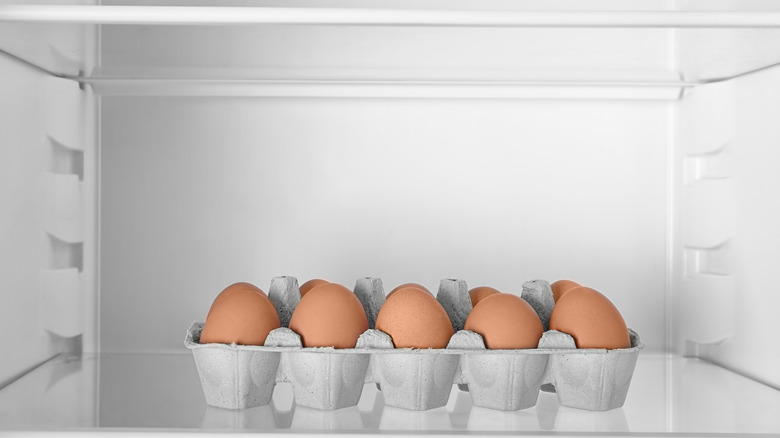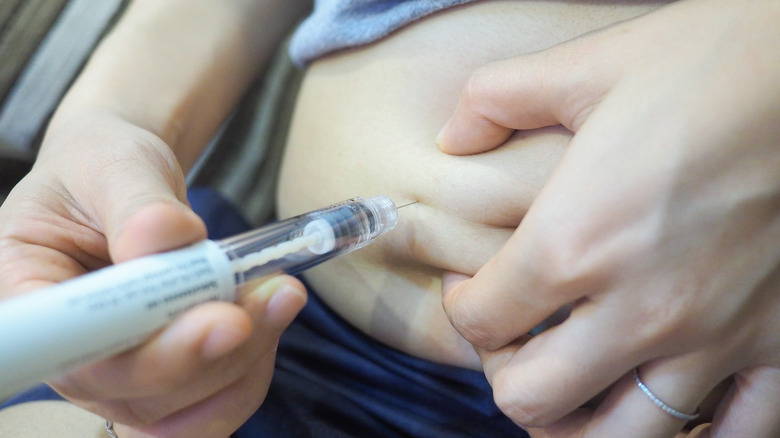What To Expect When Freezing Your Eggs
Unless you're reading this from another dimension where the calendar year is stuck at 1952, you're right in thinking you should be safe from prying questions about your uterus and if/when you will be filling it up with a baby. Unfortunately, even in this day and age, that's not the case though. (Hey, dwellers of 3022, do things get better?) Women have long been subjected to invasive, sometimes hurtful, and almost always downright-rude conversations surrounding their age, fertility, and desire to have children. And the added pressure from nosy outsiders doesn't make the mammoth choice of motherhood any easier.
If you're interested in freezing your eggs, you're probably well aware that we're most fertile in our 20s, and that fertility begins to gradually decline after 30. Dr. Chantel Cross, a reproductive endocrinologist and infertility specialist at the Johns Hopkins Fertility Center, reminds us that our supply of eggs starts to rapidly decline around age 37, and by the age of 43, 90% of our eggs are no longer viable for pregnancy (per Johns Hopkins Medicine).
But there's no need to send yourself into a tizzy. We live in a much different world than the women of 1952 and, for a number of reasons, a baby by 35 might be totally out of the realm of possibility for you. And if you so choose, that's where freezing your eggs could come into play.
What is egg freezing and who can do it?
UCLA Health defines egg freezing — otherwise known as oocyte cryopreservation — as the process of extracting, freezing, and storing a woman's eggs as a method to preserve reproductive potential. In other words, your ovaries are stimulated to produce mature eggs that will be removed and frozen, so that if down the road you do decide you're ready for a little one, the eggs can be thawed, fertilized, and implanted in the uterus via in vitro fertilization (IVF).
Needing a little more time is only one of many reasons women freeze their eggs. Others include preserving fertility for women being treated for cancer or requiring surgeries that could damage the ovaries, and having a family history of premature menopause or ovarian failure. It's a step in covering your bases so that you can keep your options open. Care Fertility says the best age to freeze your eggs is sometime in your late twenties, but that you can still get good results between 30 and 35. However, the process isn't a quick, in-and-out procedure, so let's take a closer look so you can better decide if freezing your eggs is right for you.
What's the process look like?
What to Expect says that to begin the process of freezing your eggs, you'll first get hormone injections for up to 14 days. The injections will stimulate the ovaries to produce multiple eggs, instead of the one we normally produce each month. (Heads up: the injections might cause headaches, nausea, bloating, and bruising at the injection site.)
Throughout those two weeks, you'll have ultrasounds to see how the follicles containing the eggs are coming along. Once your doctor decides the eggs are good and ready, you will get a shot of hormones that will begin the ovulation process. Your doctor will then remove the eggs through your vagina using a needle, with the goal of collecting between 15-20 eggs. The removal process takes 20-30 minutes and, don't worry, you'll be lightly sedated so you won't feel any pain. Immediately after their removal, your eggs will be flash-frozen and brought to storage. It is common for some women to need multiple cycles of ovulation induction to collect the desired amount of eggs.
Once you're ready for pregnancy, the eggs will be thawed and assessed. Those who survived the freezing process will be injected with a single sperm in hopes of fertilization. If fertilization occurs, the embryo can then be transferred to your uterus.
How much does it cost?
While freezing your eggs can be a great safeguard, it does come with a hefty price tag and some risk. According to What to Expect, prices vary from clinic to clinic, but you can expect to pay somewhere between $9,000 to $20,000 for the hormones to stimulate ovulation and the egg retrieval. That number will go up for women who need multiple rounds. There is also a yearly fee for egg storage which can run up to $1,000 annually, and if you do decide to get pregnant later, fertilizing and implanting the embryos will cost a few thousand more. While it's unlikely insurance will cover the procedures, some clinics offer payment plans or loans.
It's important to note that freezing your eggs doesn't guarantee future pregnancy, either. Because the science is still so new, there isn't a significant amount of data regarding success rates, but Yale Medicine reports that IVF only works about 50% of time, and that using frozen eggs might lower those odds even further, as the viability of the eggs after freezing is not guaranteed.




